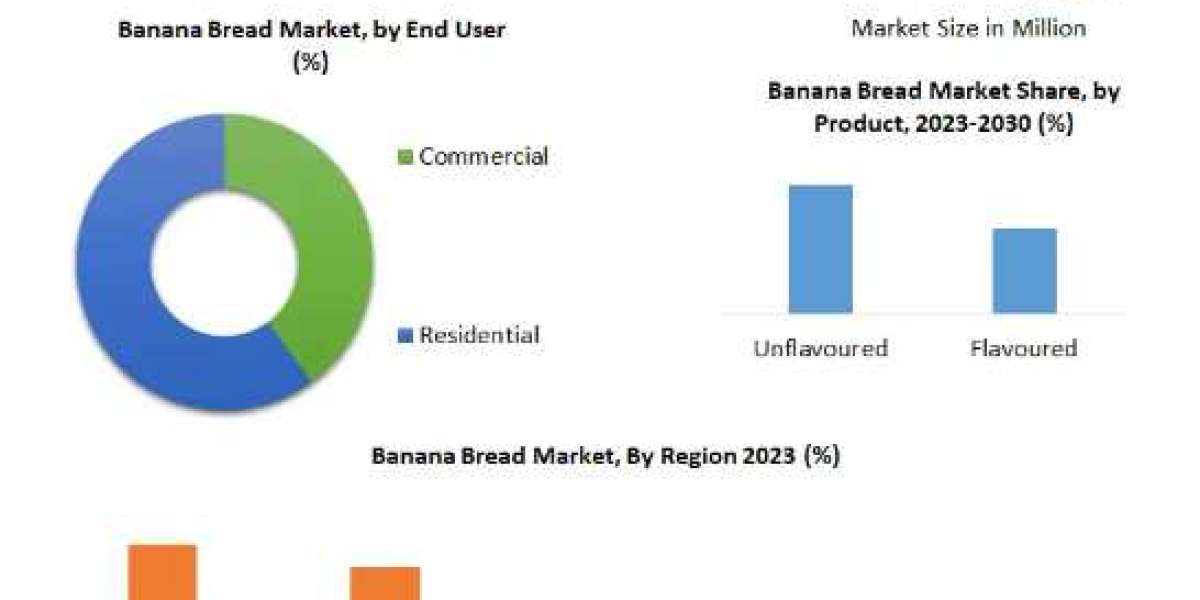For the U.S. News Best Diets for 2022, a team of health and nutrition experts assessed not only how well the diets worked for weight loss, but also if the diets were heart-healthy, effective for treating diabetes, and simple to follow. Three panelists are now debating which of the diets ranked highest by U.S. News and World Report make the most sense for seniors.
Calories are being reduced.
A registered dietitian and diabetes educator named Amy Campbell believes the DASH, Mediterranean and Mayo Clinic diets are the best options for older persons since they are effective for weight reduction while also addressing chronic illnesses such as diabetes and high blood pressure.
In addition, "the MIND diet is another option for older persons since it combines the DASH and Mediterranean diets, concentrating on foods that might support and promote brain function in order to potentially minimize the risk of mental decline, including Alzheimer's disease."
According to Campbell, being overweight or obese may be a problem for elders, just like it can be for anybody else. "As people live longer lives, we're seeing more of it in older persons," says the researcher. As we grow older, our caloric requirements decrease. People no longer require as much food as they did when they were 20 or 30 years old."
According to Campbell, older women require anything from 1,600 to 2,200 calories per day, depending on how active they are, whereas younger women require between 1,800 to 2,200 calories per day, depending on how active they are. For older males, the daily caloric intake is from 2,000 to 2,800 calories, but for younger men, the range is 2,200 to 3,200 calories.
What are more recent approaches to weight loss? Dr. Campbell explains that intermittent fasting, which is a strategy that regulates when you eat and how much you consume, might be beneficial for weight reduction and perhaps for avoiding or controlling diabetes. Her research team found that intermittent fasting was not an effective technique for weight loss in older persons, but she believes that this is due to a lack of data.
Campbell is wary of the ketogenic or keto diet, for a variety of reasons. For older folks, she notes that one of the dangers of this diet – which focuses mostly on consuming fat with some protein and very little carbohydrate – is that they don't get enough protein, which can result in muscle mass loss. "The keto diet is also a lot of work, and it might get tedious for some people." You should consult with your doctor before beginning any of these diets to ensure that they are both safe and appropriate for you."
Increasing the amount of protein
Frail and elderly persons, according to Campbell, are particularly vulnerable. She points out that a lack of protein puts patients at risk for decreased immunological function as well as osteoporosis.
As Campbell points out, "Other factors can make it more difficult to eat healthy as you get older, including problems with chewing or swallowing, a decrease in mobility, which can make cooking and shopping more difficult, changes in smell and taste, and a decrease in income, which can make it more difficult to afford food."
According to Campbell, you are not need to follow a specific diet, but rather "simply a well-rounded diet with additional protein." Not only should you make the most of the calories you consume, but you should avoid eating a bowl of cereal for dinner or consuming complete meals consisting just of bread and tea. For Campbell, plant-based proteins such as lentils, beans and chickpeas are excellent sources of affordable plant-based protein that can be used to fill out meals. "You don't need animal protein in every meal," she adds.
According to the United States Department of Agriculture's dietary reference intake, an adult weighing 150 pounds would require around 55 grams of protein per day (0.8 grams per kilogram of body weight). Some experts, however, believe that older persons require more protein (up to 1.2 grams of protein per kilogram of body weight, or around 70 to 80 grams of protein per day for a person of that size).
According to Campbell, a very low-fat diet such as the Ornish diet may be less suited for the needs of elders and more difficult for seniors to follow. Similarly, she believes that the Biggest Loser diet would be unsuitable, and that the plan's terminology could be difficult to grasp.
For diets in general, Campbell advises that they should be simple and easy to include into a person's daily routine as much as possible. "Those that not only promote excellent health but are also as simple to follow as feasible," she says."
Simplicity, balance, and effectiveness are all important considerations.
Weight Watchers and diets with comparable patterns, according to Dr. Michael Davidson, head of preventive cardiology at the University of Chicago Medical Center and member of the U.S. News Best Diets panel, perform well because of their simplicity, according to the panel.
With WW, for example, various meals are allocated different points, which you accumulate daily in order to maintain your own goal weight, height, and age, which is dependent on your gender, weight, height, and age. "Davidson explains that "you don't have to spend a lot of time thinking about the balance of meals or creating menu plans," which may be advantageous to seniors who have difficulty with meal planning.
Long-term compliance is an essential element in rating diets, according to Davidson: "What can be a permanent improvement for the patient rather than just a short-term fix?" As a result, he explains, "it's really more about diversity and food choices than it is about portion sizes when it comes to catering to an older person." As a result, it's the type of diet I recommend for those people."
Iron deficiency is a condition that Davidson occasionally finds in weak, elderly patients. According to him, "They don't consume enough red meat, and they don't get enough iron in their diet." The paleo diet was ranked lower on the list of the Best Diets, although he believes that it "may be a healthy diet." It's gotten a little too much attention, but the fundamental ideas are sound, such as people eating more complex carbs and lean proteins." It has been brought to his attention that constipation can be a problem for seniors following a low-carb, low-fiber diet.
More clinical trial data (for adults generally) supports intermittent fasting, according to Davidson. Intermittent fasting is defined as ingesting no calories for around 16 hours out of every 24 hours, with the majority of meals occurring between midday and 8 p.m. "In my clinical experience, intermittent fasting has proven to be a useful technique for increasing the effectiveness of a low-carbohydrate diet.
While the ketogenic diet has been shown to be effective for weight loss, Davidson has some reservations. While the keto diet is becoming increasingly popular and may be a highly effective strategy to weight reduction, some patients may see a significant rise in LDL cholesterol, particularly when following the carnivorous keto plan, according to Dr. Lipton. "If the patient wishes to continue a ketogenic diet, I propose that a lipid profile be performed first, and then that the diet be adjusted to limit the quantity of saturated fats – butter in particular – consumed."
If a patient's blood level of "bad" LDL cholesterol is elevated, he recommends that they replace saturated fats with healthy fats such as omega-3 fatty acids or monounsaturated fats such as avocado and olive oils, which are rich in antioxidants.
Diabetes and Cardiovascular Health
The DASH and Mediterranean diets, according to Campbell, "may assist persons in both the prevention and treatment of diabetic complications." They are effective because they encourage individuals to eat a variety of meals and make them conscious of the amount of carbohydrates they ingest, she explains. Both diets are recommended by the American Diabetes Association in their most recent nutrition guidelines, which are available online.
According to Davidson, patients with high cholesterol fare better on low-saturated fat diets that include low-fat dairy products, lean meats, and fish, among other things. According to him, it is critical for seniors with high cholesterol to avoid sweet baked products that include trans fats since "we now realize that trans fats are particularly harmful among all of the fats we may ingest."
Diets that are doable
According to Campbell, "we're all creatures of habit." As a result, she claims "Consider the following scenario: you are 75 years old and must adjust your eating habits in order to embrace foods that you may not be accustomed to, such as tempeh or farro. Despite the fact that most diets include a plethora of online and physical materials, it can be hard to navigate through them. “ It might be difficult to pick up a book and ask yourself, 'what should I be consuming right now?'" It can be beneficial for older persons to collaborate with nutritionists.
Davidson believes that the WW point system is effective because it makes it simple to consume a balanced diet. Others, like as Jenny Craig and Nutrisystem, which deliver prepackaged meals throughout the day, "keep caloric content low but consistent throughout the day," he adds. "And those are highly effective in the care of the elderly."
Cost can be a concern in some cases. Jenny Craig meals cost an average of $21 per day, or $24 per day if you include snacks and personal coaching in your purchase. Even with the most expensive level of coaching, non-food expenditures can add up to about $50 per month, in addition to the cost of food.
In the case of the elderly, "you may attempt to emulate the Weight Watchers diet and identify prepared meals that are beneficial to patients when cost is a problem," Davidson adds. Patients can benefit from his office's seven-day food plan, which includes recipes and nutritional coaching.
Fruits and vegetables are a good source of vitamin C.
U.S. News and World Report also lists the best plant-based diets, with the Mediterranean and flexitarian diets taking the top two rankings, respectively. According to Campbell, seniors frequently fall short when it comes to fruits and vegetables.
Even on a tight budget, it is feasible to consume nutritious foods. "Depending on where the fruits and vegetables are imported from, frozen fruits and vegetables can be less expensive and sometimes even healthier than fresh," Campbell explains. She believes that canned vegetables is OK if there is no added salt.
Balance of Fluids
Due to the fact that our sense of thirst might diminish with age, it is essential to drink plenty of water to avoid dehydration. According to Campbell, beverages such as soda and fruit juice contain a significant amount of calories, and drinking juice all day is not recommended for those with diabetes. Instead, she recommends flavored water or water with a slice of lemon added to the glass.
She has some good news for coffee and tea drinkers: Caffeine is not as dehydrating as previously believed. Plus, she continues, "coffee and tea may offer health advantages, such as a decreased risk of some types of cancer, heart disease, stroke, and Type 2 diabetes." "However, you should consult with your doctor to determine how much caffeine is safe for you to ingest."
According to Davidson, persons using diabetic drugs may have low blood sugar and diuresis while on the Atkins diet, particularly during the initial phase (they may urinate more). While he normally recommends extremely carbohydrate-restrictive diets, he believes that moderate regimens are preferable for many elderly people.
Efforts to Conserve Energy
At the very least, older folks who are attempting to lose weight may have an edge. The Duke Lifestyle and Weight Management Center's Elisabetta Politi is a licensed diabetes educator, dietitian clinician, and health and wellness coach. "Many of the individuals I work with who are 70 and older simply remark that they are not as hungry," she says. "In a way, that is beneficial since it is really difficult to assist someone in losing weight when they are always moaning about being ravenously hungry - which is a problem that is more prevalent among the younger people."
Politi takes into consideration the age of his customers while designing weight-loss programs, recognizing that older people are more vulnerable to weight gain. During a pandemic, "you really want to counsel patients to reduce weight gradually because you don't want their immune system to be compromised," she explains. "You also want to keep their energy in reserve. Extremely restricted diets may have a negative influence on energy, which we know is a predictor of long-term success — the ability to be active and engage in physical activity." She points out that this might be difficult for the older population, who frequently experience challenges with mobility and knee or back discomfort.
Both motivation and effort are required.
Older individuals are looking for dietary strategies that are successful.
'I attempt to come up with something that is sustainable, that takes into consideration their lifestyle and interests, but that will provide results,' Politi explains. For the simple reason that I understand how discouraging it may be when you are trying to lose weight and making adjustments – yet the scale doesn't budge. The fact that they don't burn as many calories as the younger ones is something I observe regularly among my senior patients."
Balanced diets that provide people with tangible benefits while also having no detrimental influence on their energy, health, or immune systems, according to Politi, are wonderful alternatives to consider. She is a proponent of the MIND diet, which is a mix of the Mediterranean diet and the DASH diet. It also has a MIND advantage: "It is specifically designed to prevent neuro degenerative processes while also maintaining alertness and mental sharpness."
According to Politi, the Mediterranean diet "is a fantastic example of something that is not as radical as the ketogenic diet." She praised the Mediterranean diet's emphasis on good fats and whole foods, which she believes are important components of a balanced diet. "Because it contains protein, we will not lose lean tissue, which is something that is obviously a worry when we think about older folks," she explains. "We want to keep their muscles as much as possible."
Politi emphasizes the need of taking a personalised approach. This involves taking into consideration personal tastes while also taking a realistic view of the amount of food preparation and cooking time required for any certain diet. Meal delivery packages, she explains, may be a convenient and time-saving option for certain clients.
When it comes to reducing weight, motivation is essential. Politi constantly asks her clients what they have done in the past that has worked for them since success is motivational and boosts confidence when beginning a new eating regimen.



